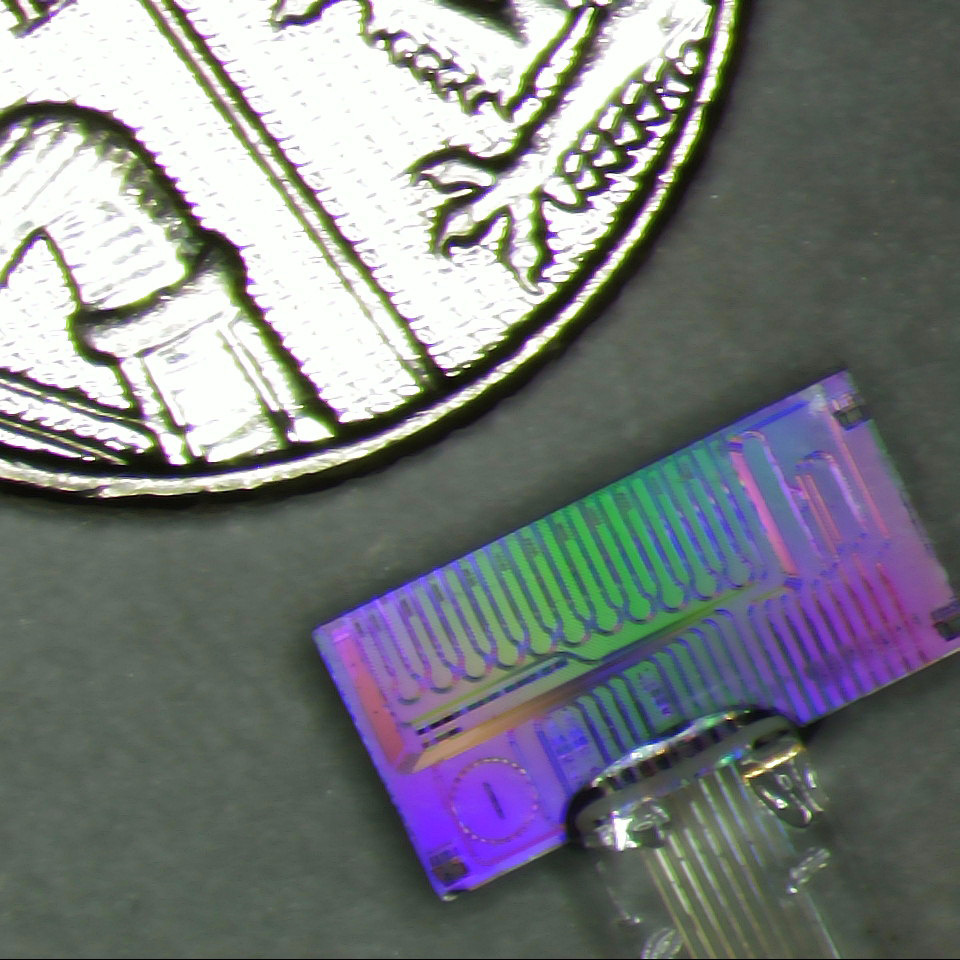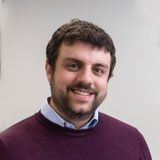Dr Juan Sebastian Totero Gongora
Incoming EPSRC Quantum Technology Career Development Fellow – Physics
Incoming EPSRC Quantum Technology Career Development Fellow, Dr Juan Sebastian Totero Gongora’s expertise lies in complex nonlinear photonics. This emerging research area applies the physics of complex systems to understand and control the interaction of thousands of light waves in ultrafast photonic devices and applications. Juan’s current research is advancing the development of an innovative real-time, data-driven method to control high-power micro-comb lasers using Artificial Intelligence (AI), Machine Learning (ML) and nonlinear control theory.
Micro-combs lasers – revolutionising quantum technologies
Micro-combs are miniaturised lasers that emit ultra-precise pulses of light. They are ideal candidates to provide the fast-beating “optical heart” required by transformative technologies including portable atomic clocks, hazardous chemical detectors, wearable devices for high-precision medical diagnostics, and computer chips operating at photonics speed. Despite impressive technological advances, they remain difficult to control at the high-emission powers required by energy-demanding applications.
Aristotle said, "The whole is more than the sum of its parts". In complex systems, the collective behaviour of their components gives rise to properties that would not necessarily be predicted from those of their parts. Complex systems include ant colonies, human economies, the climate, cells and living things (including human beings), and modern energy and telecommunication infrastructures.
A micro-comb’s ultrafast pulses originate from the interaction of thousands of optical waves within the miniaturised laser.

When approaching high powers, these interactions become increasingly hard to control or tame, and the micro-comb emission can become too irregular and unpredictable for real-life applications.
As a result, even highly-optimised micro-combs are restricted to operate at relatively low powers, where their emission is easier to tame.
As part of the Loughborough community, my ambition is to provide a game-changing solution to the current stability and energy-efficiency limitations of micro-comb technology.

This limitation is common across many laser technologies, and high-energy emission states have remained a substantially uncharted territory.
My research aims to find new ways to tackle this challenge by developing new approaches and techniques based on Artificial Intelligence (AI) and the physics of complex systems to gain unprecedented control over these high-power emissions.
My newly awarded EPSRC Quantum Technology Career Development Fellowship will enable me to build on my previous research and unique expertise in complex nonlinear systems, photonics AI and micro-combs.
With the University’s support, the Fellowship will also allow me to muster a first-class team of researchers.
Together, we’ll learn how to control micro-comb lasers “at will” to meet the stringent conditions required to link emerging quantum technologies – such as portable atomic clocks or sensors – with ultrafast integrated photonics.
My research journey
I decided to pursue a degree in Physics after reading The Emperor's New Mind by Roger Penrose - recommended to me by my high school teacher. In it, Penrose introduced me to Physic’s quest to explain the unexplainable - in this case, human intelligence - through simple mathematical models, universal laws, and physical intuition.
To my great surprise, during my BSc and MSc, I discovered that a large part of our world is simply too complex to be explained with simple mathematical models, and researchers are striving to define a new type of physics - the science of complexity - to tackle this challenge.
I completed my MSc in Theoretical Physics of Disordered Systems at the Sapienza University of Rome, graduating in 2012 with a thesis on the study of Casimir Forces in disordered systems – a puzzling quantum effect with essential implications in nanotechnologies.
Alongside my BSc and MSc studies, I worked as a Junior ICT Manager for the European Biomedical Foundation and as a Software and Systems Engineer for Noemata SRL. These roles gave me a wealth of industrial experience, helping me to develop a range of transferable skills, including project management and industrial software development.
While I was working on my Master's thesis, my supervisor, Professor Andrea Fratalocchi, encouraged me to consider furthering my postgraduate research with the PRIMALIGHT Group at the King Abdullah University of Science and Technology (KAUST – Saudi Arabia).
I visited the University and was very impressed. So, in 2012 I took up the challenge of relocating to a new country and a brand-new university to start a PhD in Electrical Engineering.
During my PhD, I investigated complex nonlinear interactions in photonic systems by combining theory and experiments. I developed a broad range of applications, including early-stage cancer detectors, nature-inspired structural colours and neuromorphic integrated lasers.
When I completed my PhD, in 2017, I joined the EPic Lab at the University of Sussex, where I worked on developing new techniques for terahertz microscopy and nonlinear photonic interactions in terahertz emitters.
In 2019, I was awarded a prestigious Helena Normanton Fellowship in Quantum Technologies from the University of Sussex and became increasingly involved in modelling nonlinear photonic interactions in micro-comb lasers.
To continue my research, in 2020, I successfully secured a Leverhulme Early Career Fellowship to explore the use of AI to control ultrafast lasers.
My new role at Loughborough – as an EPSRC Quantum Technology Career Development Fellow – is advancing this work. As part of the Loughborough community, my ambition is to provide a game-changing solution to the current stability and energy-efficiency limitations of micro-comb technology.
